P0089 – Fuel Pressure Regulator – Performance Problem
In modern gasoline and diesel engines, high-pressure fuel pumps play a crucial role in delivering fuel to the engine’s cylinders. Capable of reaching pressures exceeding 10,000 psi, these mechanical pumps are mounted on the engine itself. Unlike low-pressure fuel injection systems, high-pressure systems rely on electronic control for fuel pressure regulation.
The fuel pressure regulator (FPR) is a key component responsible for modulating the fuel rail pressure. Different engine designs use various methods to achieve this. In some return-less systems, a variable-speed low-pressure supply pump, controlled by the engine control module (ECM), modulates fuel pressure. On other systems, the ECM directly controls the FPR, either regulating the fuel entering the pump or the amount of fuel returning to the tank through the fuel-return line. The FPR may be mounted on the high-pressure fuel pump or the fuel rail itself.
Related post: The Best Fuel System Cleaners to Consider
To maintain proper fuel rail pressure, the ECM cycles the FPR based on engine demand. It lowers the FPR cycle for higher fuel pressure and increases it for lower pressure. Continuous monitoring of fuel pressure is performed using the fuel rail pressure sensor. If the ECM detects deviations from the commanded fuel pressure, such as unexpected increases or decreases, excessive or insufficient pressure, it triggers the diagnostic trouble code (DTC) P0089, also known as “Fuel Pressure Regulator Performance.” The MIL, or malfunction indicator lamp, illuminates as a result.
NOTE: this is a generic DTC description, and various automakers may use different descriptions or codes. Some examples include “Suction Control Valve Stuck” for Mitsubishi, “Fuel Rail Pressure Performance” for Citroën, “Fuel Pressure Relief Valve Open” for Ford, and “Fuel Pressure Control Performance” for Chevrolet. Additionally, specific information codes may provide more detailed fault information.
Causes of OBD-II Code P0089
Here are some ways to fix the issue:
Air in Fuel: Certain vehicles with high-pressure fuel systems may be prone to air-in-fuel failures, leading to pressure spikes or relief valve activation, causing internal leaks. Air can enter the system through leaks or restrictions in the fuel line.
FPR Failure: Similar to other solenoid valves, the high-pressure fuel pressure regulator can fail due to electrical short-circuit or open-circuit problems.
Fuel Level: Running out of fuel can cause pressure fluctuations and potential air intrusion, while supply pump failure can result in similar issues.
Cam Failure: Mechanical fuel pumps are driven by lobes on the camshaft. Some European vehicles may experience failures due to infrequent or improper oil changes, leading to abnormal wear on the cam lobes or the cam follower.
Symptoms of Code P0089
The symptoms of DTC P0089 may vary depending on the vehicle type and failure mode. Possible indications include difficulty starting the vehicle, stalling after a few minutes of running, poor fuel economy, reduced performance, lack of power, rough idling, engine knocking, a rich condition with potential fuel trim DTCs, or black smoke from the exhaust.
How Much does It Cost to Fix the Code P0089?
The cost of fixing can vary depending on several factors. The total expense will depend on the underlying cause of the issue, the specific vehicle, and the labor rates in your area. Here are some cost considerations to keep in mind:
- Diagnostics: The initial diagnostic process to identify the root cause of the P0089 code may involve using a scan tool, specialized equipment, and the expertise of a qualified mechanic. Diagnostic charges can range from $50 to $150 or more, depending on the complexity of the issue and the labor rates in your area.
- Replacement Parts: The cost of replacement parts will depend on the specific components that need to be repaired or replaced. Common parts associated with P0089, such as the fuel pressure regulator or fuel pump, can range from $50 to $500 or more, depending on the vehicle’s make and model and whether you opt for original equipment manufacturer (OEM) or aftermarket parts.
- Labor Costs: The labor charges for fixing the P0089 code will vary depending on the complexity of the repair and the hourly labor rates of the repair shop. Labor rates can differ significantly from one location to another, but generally, expect to pay around $80 to $150 per hour for labor.
- Additional Repairs: In some cases, addressing the P0089 code may uncover other related issues that require attention, such as fuel line replacements or fuel system cleanings. These additional repairs can add to the overall cost.
Considering these factors, the total cost to fix the P0089 code can range from $250 to over $1000. It’s essential to obtain estimates from reputable repair shops.
Related DTCs to P0089
There are some codes that likely would have been shown along with the aforementioned code: P0087, P0088, P0090, P0091, P0092.



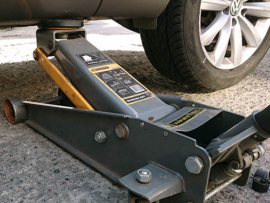
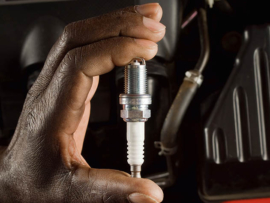
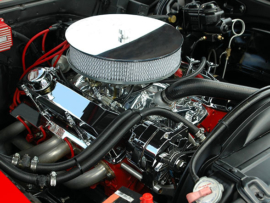
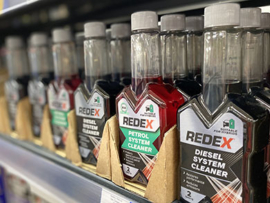
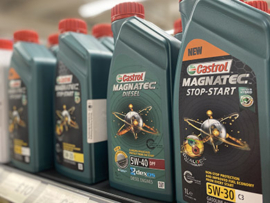
Leave A Comment